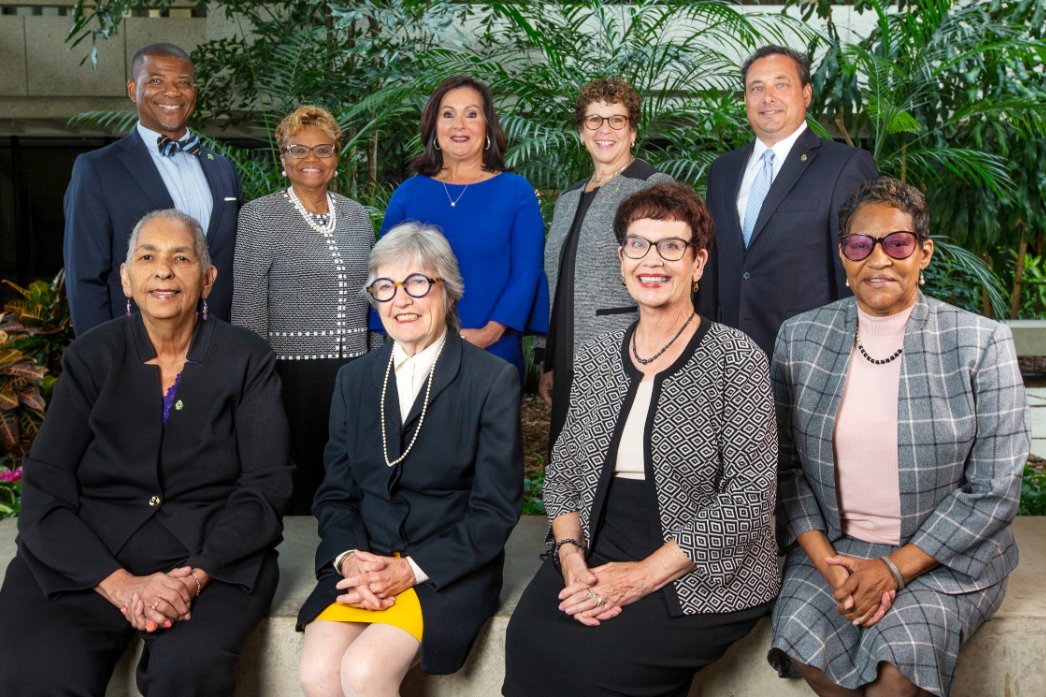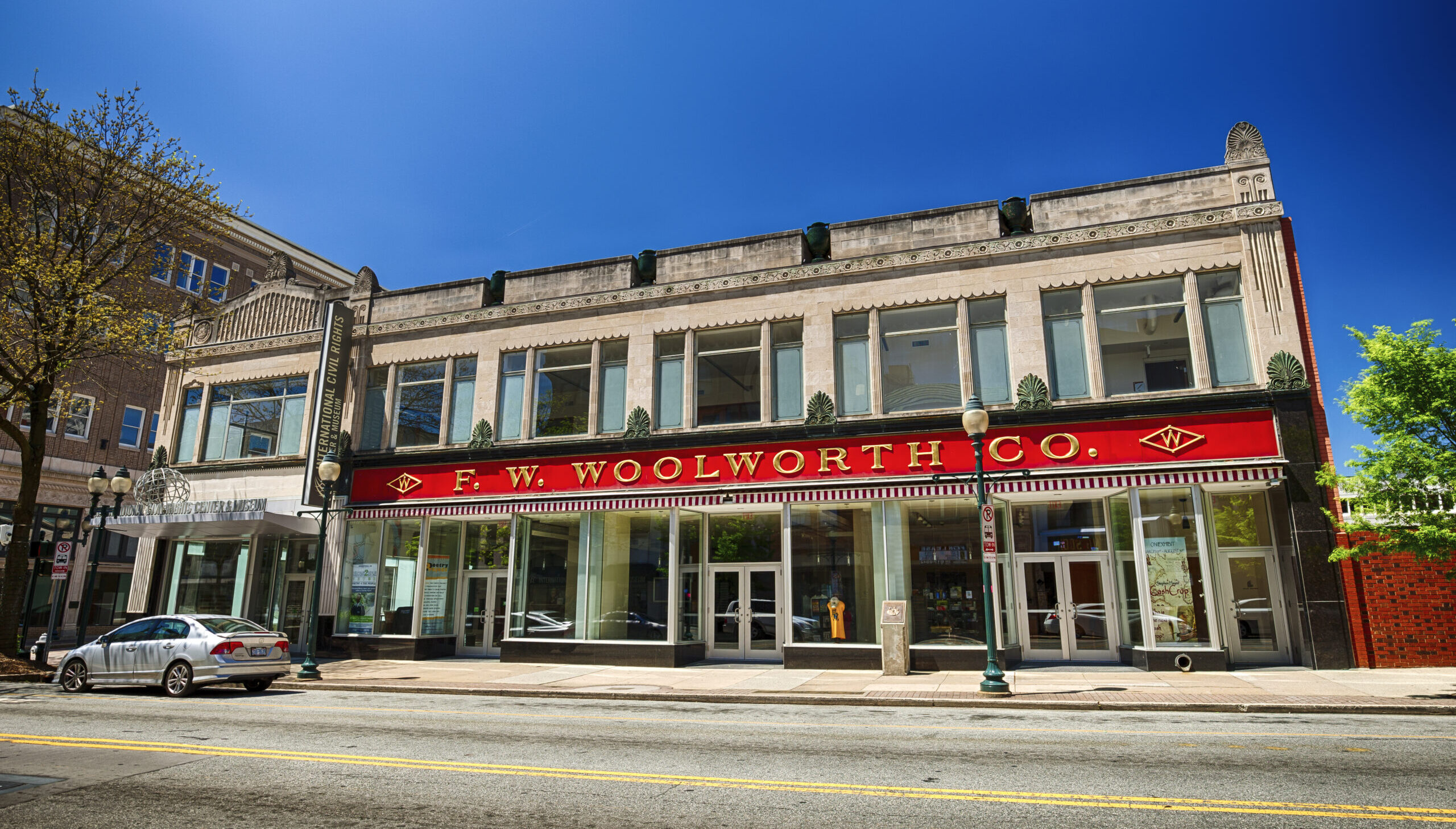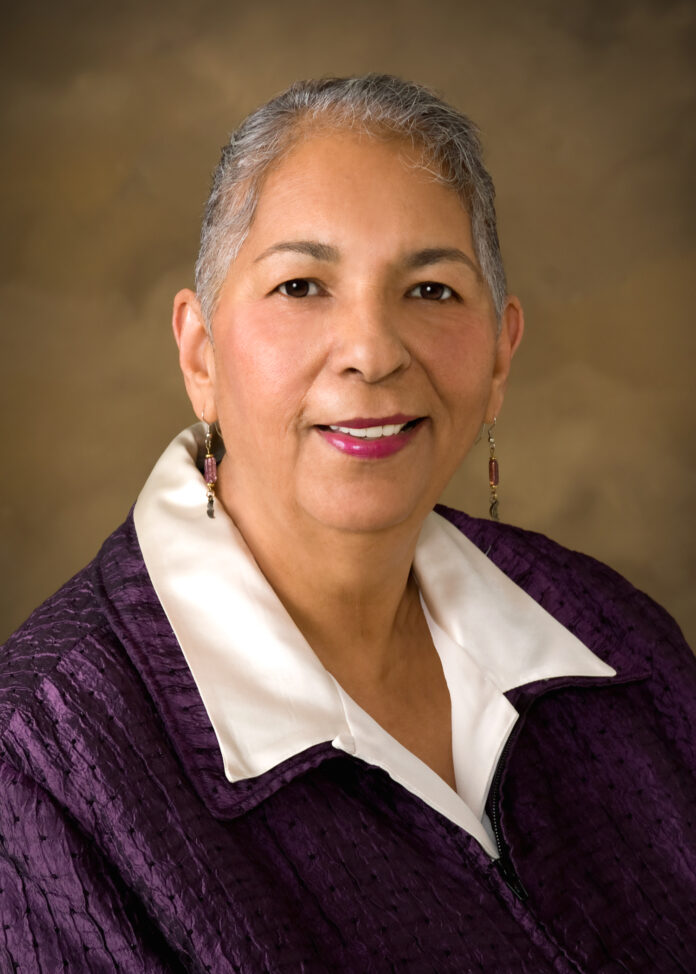For more than 60 years, from the Civil Rights Movement to now, Mayor Pro Tem Johnson has served her community, always with social justice and equity front of mind.
Yvonne Johnson’s career as a public leader started long before her election to city council. Thinking back, Johnson points to it beginning as a freshman at Bennett College. More specifically, she remembers it beginning in the throes of the Civil Rights Movement—at protests and sit-ins and, most notably, at the March on Washington, where 60 years ago she walked alongside Martin Luther King Jr. and stood in attendance at the “I Have a Dream” speech.
Johnson’s work has not diminished in the decades since. If anything, it’s grown, as has her status in Greensboro—a city whose place in the Civil Rights Movement is significant. Johnson is beyond simply a representation of that history. She is its living embodiment, and the central tenets of equity and social justice that defined her activism then continue to define her leadership today as Greensboro’s Mayor Pro Tem.
The focus is on service, through people-centered issues that change shape but always remain front and center.
“It’s not about me,” Johnson said. “It may be about my gifts and how I use them, but it’s really not about me. It’s about serving people. It’s about making lives of people better to me.”
˘˘˘
 Johnson remembers her first ever protest at the Woolworth’s Five & Dime, home to the famous Greensboro Sit-Ins. Four students from local North Carolina A&T, not allowed to dine alongside white patrons at the Woolworth’s lunch counter, organized a sit-in on February 1, 1960. By February 2, the number of protesters had grown to 20. Then to 60. With each subsequent day, more people joined the cause, eventually having more than 300 protesting the store’s policy of segregation.
Johnson remembers her first ever protest at the Woolworth’s Five & Dime, home to the famous Greensboro Sit-Ins. Four students from local North Carolina A&T, not allowed to dine alongside white patrons at the Woolworth’s lunch counter, organized a sit-in on February 1, 1960. By February 2, the number of protesters had grown to 20. Then to 60. With each subsequent day, more people joined the cause, eventually having more than 300 protesting the store’s policy of segregation.
Central to the success of the protest was the involvement of the local all-women Bennett College, where Johnson was attending.
“I grew up here and I experienced segregation,” said Johnson. “Colored water fountains, colored bathrooms, sitting in the back of the bus, the whole nine yards, and I always felt it was wrong, but I never really had that spark, that motivation to get out there and do something that might make a difference. The spirit at Bennett spurred me. Once I was on the bandwagon, I was there.”
The Greensboro sit-ins were considered among the most instrumental nonviolent protests of the Civil Rights movement, sparking similar sit-ins all across the southeast. Johnson would take part in additional protests, including a sit-in at Greensboro’s Carolina Theater. Three years later, she was at the March on Washington.
The Greensboro sit-ins led to change. By summer, Woolworth’s and other lunch counters in town were integrated. Johnson saw the power of action, and committed herself to a life of public service, primarily in the nonprofit sector. She also served on a number of different Greensboro Boards and Committees, making a name for herself among the community.
 Through those years, Johnson remembers it simply as “being in the right place at the right time.” Community members saw her another way—not as a passenger to history but a key player in it. Ultimately, she was approached about running for city council.
Through those years, Johnson remembers it simply as “being in the right place at the right time.” Community members saw her another way—not as a passenger to history but a key player in it. Ultimately, she was approached about running for city council.
“I never thought about public office, really,” Johnson said. “But I considered it. And then I said, ‘Well, I probably don’t have a chance to win, but I’ll learn a lot about the city I was born in, the city I grew up in.’” She earned far more than just an education, though. She earned a council seat, winning election in her first attempt in 1992.
Since, Johnson has true mainstays among the Greensboro community. Johnson held an at-large city council seat from 1993 to 2007, when she ran for mayor and won, becoming the city’s first African American mayor. In 2009, she lost re-election to that seat—the only defeat of her career—but rejoined the council upon winning election again in 2011, this time as Mayor Pro Tem.
In roughly 30 years of service, Johnson’s list of key issues has stayed largely the same, and matches the priorities of cities around the country: housing, transportation, and workforce development. Johnson has done well to both chip away at the problems and keep the issues front and center in Greensboro as they evolve over time, leading the charge on new affordable housing developments, increased transit offerings, and the recruitment of outside industry to provide citizens with well-paying jobs.
Always, her work is informed by the community itself.
“One of the things I enjoy most is meeting with the neighborhood groups,” Johnson said. “Really listening to what their dreams for their community are and helping them accomplish those dreams.”
Johnson’s work in the nonprofit sphere ran alongside those efforts, often supporting them. She served on housing coalitions and launched initiatives to provide workforce skills to young people in the community. Usually, she worked directly with people in need, whether it was supporting a food pantry that served more than 4,000 people a week or launching an initiative to reintegrate previously incarcerated peoples back into the community. This is work she still does today.
“You never get rich with the nonprofits, but boy you can do great service,” Johnson said. “That’s what’s important.”
 Service permeated into Johnson’s family life as well, particularly with her late husband, Walter T. Johnson, who was one of the first African American students at Duke Law School and who later served as the chairman of the Greensboro Public School Board, “helping usher in the desegregation of the city’s schools,” as noted in his Duke University obituary. He died in 2021. The Johnsons had four children, each of whom, like their parents, also ended up in public service—one working for Guilford County, and three working in education.
Service permeated into Johnson’s family life as well, particularly with her late husband, Walter T. Johnson, who was one of the first African American students at Duke Law School and who later served as the chairman of the Greensboro Public School Board, “helping usher in the desegregation of the city’s schools,” as noted in his Duke University obituary. He died in 2021. The Johnsons had four children, each of whom, like their parents, also ended up in public service—one working for Guilford County, and three working in education.
“It’s the little things you can do to make a difference in the lives of people in this community to lift the quality of their life,” she said. “That is what our motivation was.”
Yvonne Johnson’s work has been appropriately recognized over the years, winning awards for her nonprofit work, economic development successes, public leadership, and more. But perhaps no accolade better sums up her work than the honor presented to her this year by Greensboro’s International Civil Rights Center & Museum, during a gala that commemorated the anniversary of the March on Washington.
Johnson was honored with the Lifetime Community Service Award.
“Service is the rent we pay for living on this Earth,” Johnson said. “I truly believe that.”














